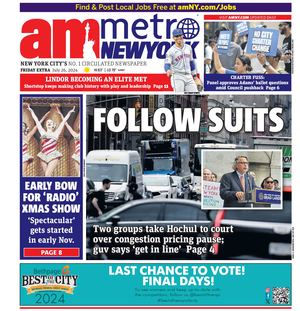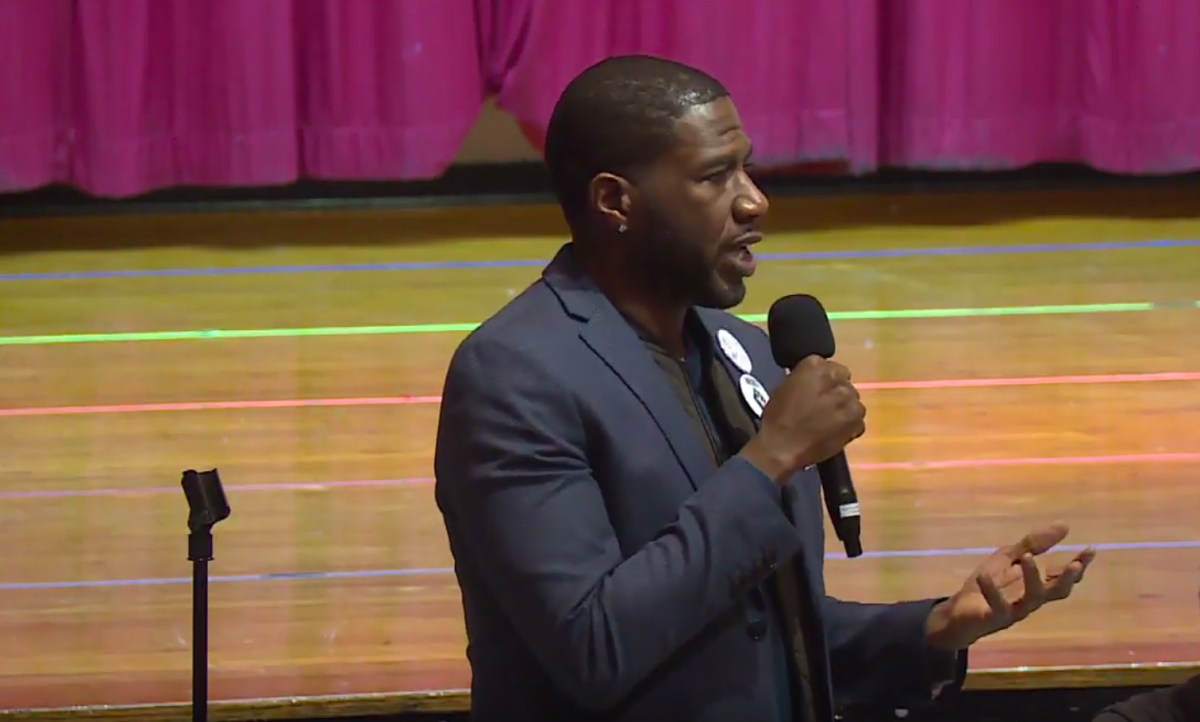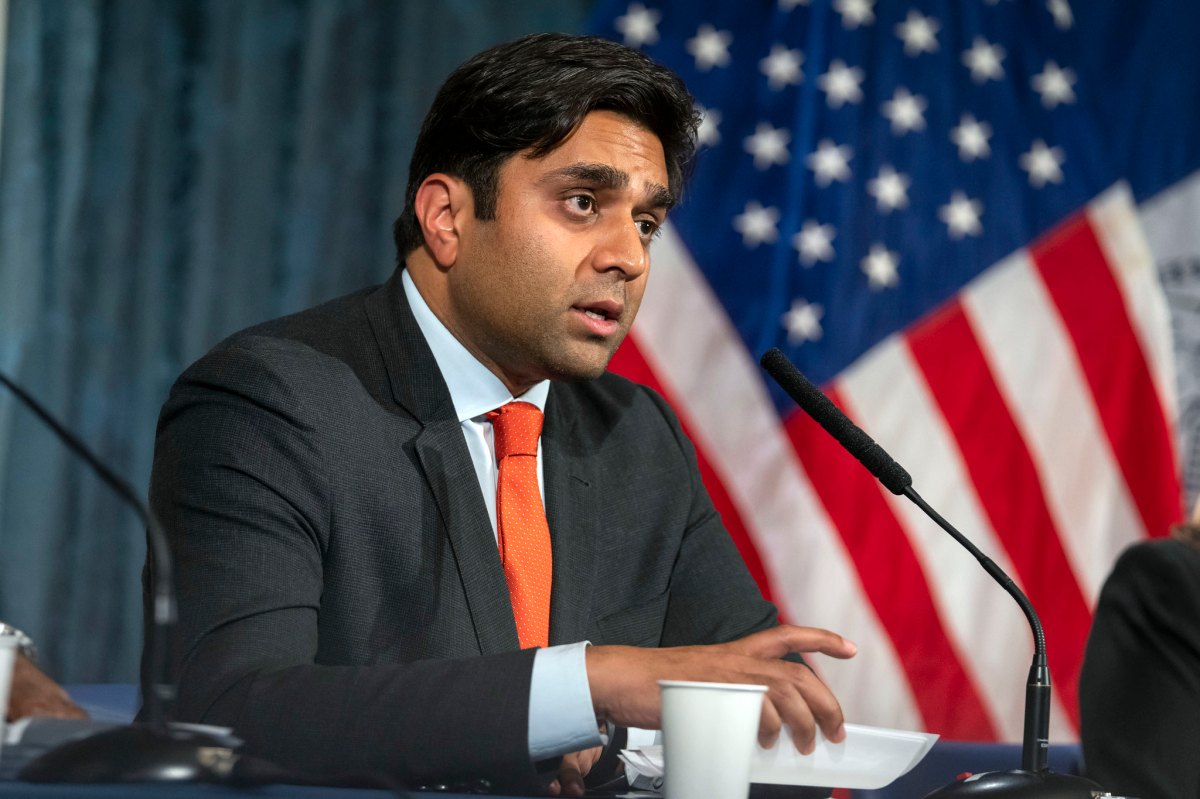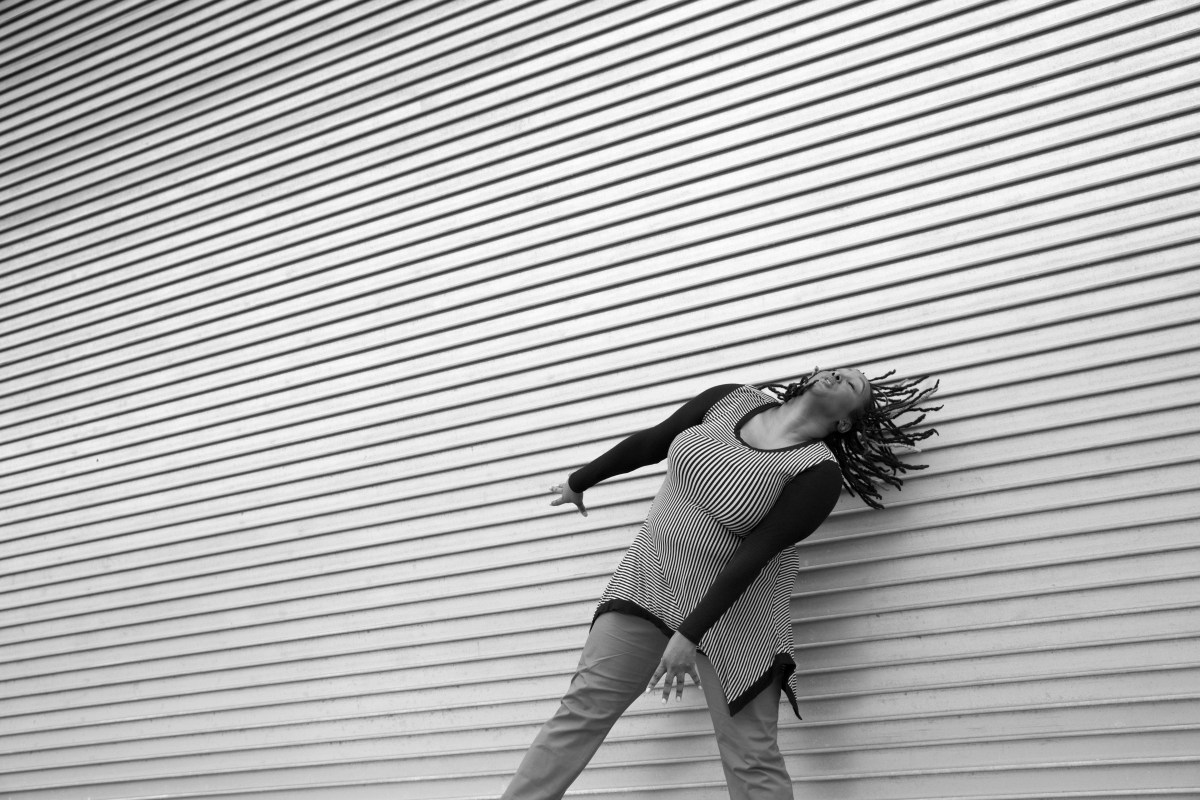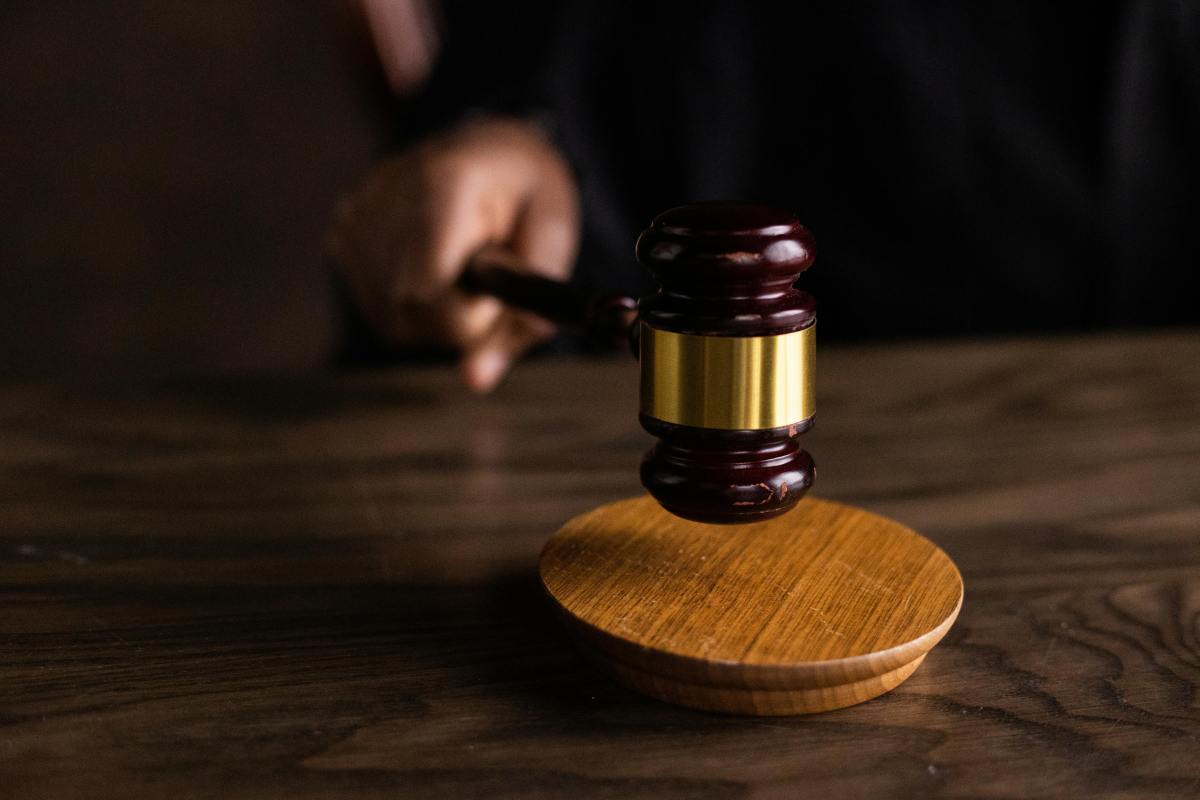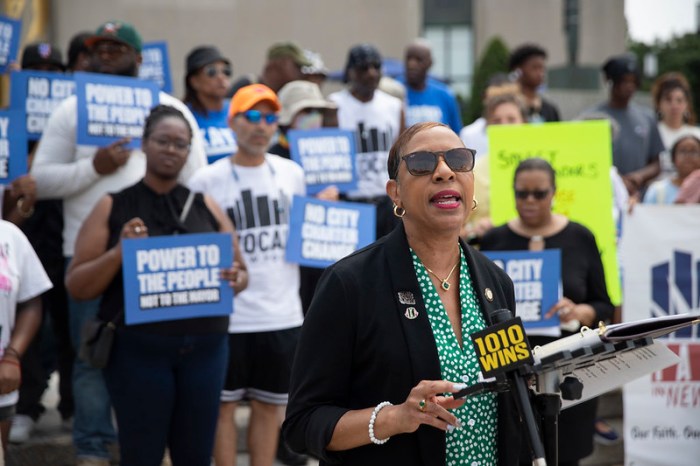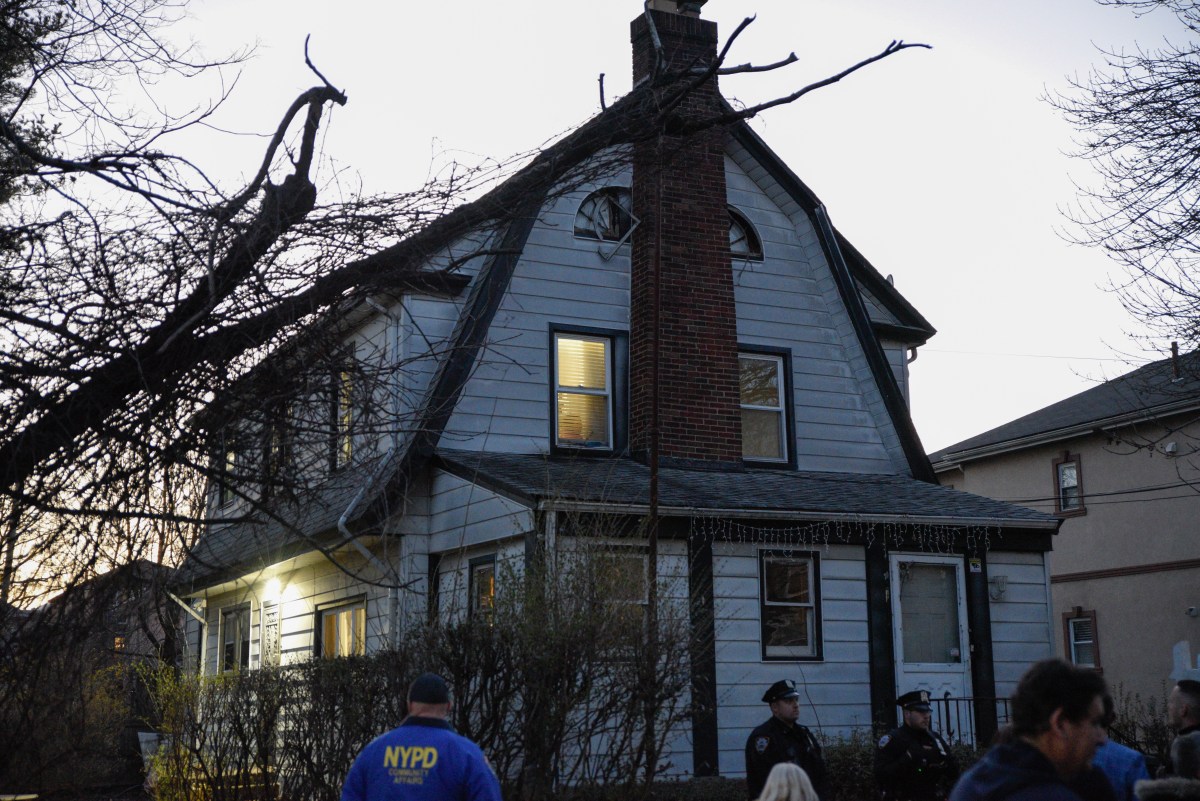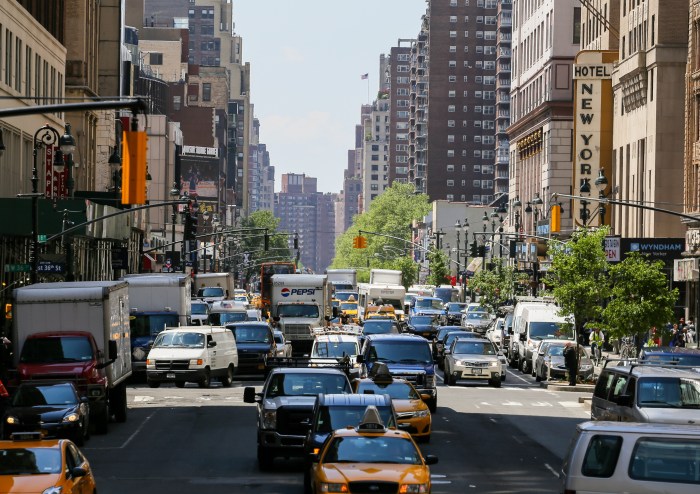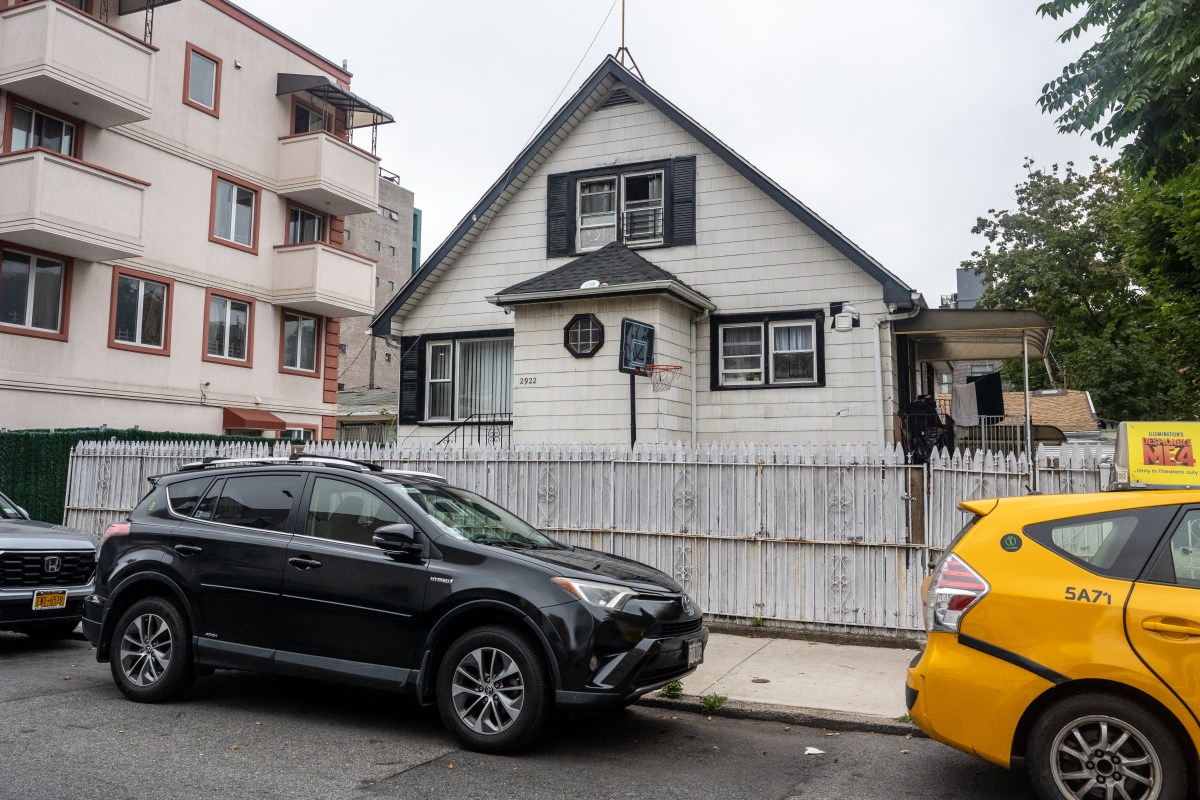BY GABE HERMAN | Just a week into his new job as the city’s public advocate, Jumaane Williams visited Community Board 3 on March 26.
Williams said he came to say thank you and hear from board members about what concerns are most pressing in the East Village, the Lower East Side and Chinatown. Issues raised to him included proposed changes to the M14 bus routes and congestion pricing.
Williams received a warm reception as he was introduced at the meeting, held in the auditorium at P.S. 20 at 166 Essex St.
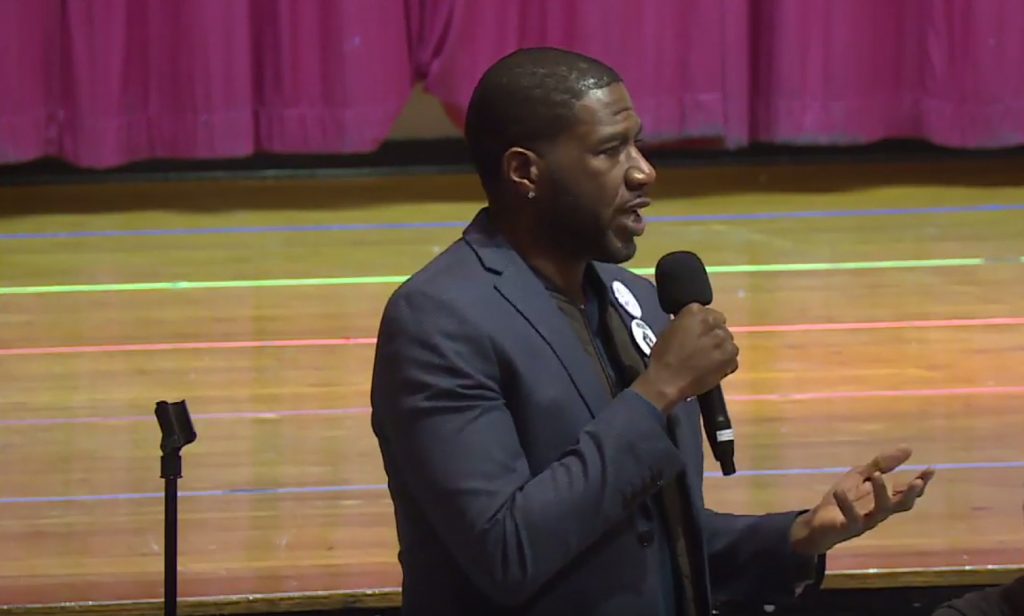
“Community boards are dear to me,” Williams said, noting he started out as a member of Community Board 18 in Brooklyn 20 years ago.
He said he knew how critically important community boards are, and he thanked those who voted for him in the race for advocate.
“For those who didn’t, I’m still your public advocate,” he said to laughs. “I have a job to do and that includes making sure your issues are heard, as well.”
Nancy Ortiz, the board’s second vice chairperson, asked Williams to give his position on congestion pricing.
“I may get some boos, but I do support congestion pricing,” he responded, mostly to applause. Williams called the initiative “critically important.”
It’s a matter of parity, he said, since subway riders are usually the ones asked to pay, but drivers should contribute funding, as well, for the Metropolitan Transportation Authority.
Williams said he was open to exemptions on the congestion surcharge, such as for disabled and elderly people. And he stressed that he wants to make sure the funds actually would go to the M.T.A.
“I do not trust the governor. That is my only caveat,” Williams said, of keeping an eye on where the funds go.
Williams was also queried about the proposed Two Bridges towers development plans.
“The fact that they went around ULURP is ridiculous,” scoffed Williams, referring to the review process that the City Planning Commission allowed the towers to avoid.
He noted that the public advocate, in fact, can appoint people to the City Planning Commission.
“I want to put someone in who has a different point of view with that, because overdevelopment obviously is a huge issue,” he said.
Williams noted that, even if developments were being properly devoted to affordable housing, most people don’t want to live next to tall buildings.
“I’ve called for a moratorium on most rezonings,” he said. “And I’ve also called for a racial-impact study to be done before rezonings go through, because we are failing. And if we’re going to ask people to accept some density, it should be for the housing that we actually need — and I haven’t seen that.”
A number of C.B. 3 members told Williams that the new M.T.A. plan to reduce stops on the M14A and M14D — the 14th St. crosstown bus — while implementing a Select Bus Service for those routes, would harm the community.
One member called the plan horrendous and a disservice that would disenfranchise older people, who would have to walk extra blocks to reach a bus stop.
“We need your help in saving the M14 bus stops,” C.B. 3 member Lee Berman urged Williams.
The public advocate said he was still learning about the issue and didn’t have a full answer. He assured board members that he had also listened to local residents’ testimony criticizing the plan during the “public session” at the start of the meeting.
Among those speaking against the bus plan was Kate Puls, co-chairperson of the Ninth St. A1 Block Association. She said she was representing the group’s 80 members, plus hundreds of seniors, parents and children in Alphabet City.
“The SBS will be welcome, but we rely on all the stops,” she stressed.
C.B. 3 District Manager Susan Stetzer said that SBS being added to a local route could actually decrease ridership on local buses, which happened to the M15. She said that change led to local buses arriving as much as 20 minutes apart. Stetzer urged people to ask questions about the full impact of having SBS and local routes, because even if all stops were kept, it could still have negative results.
